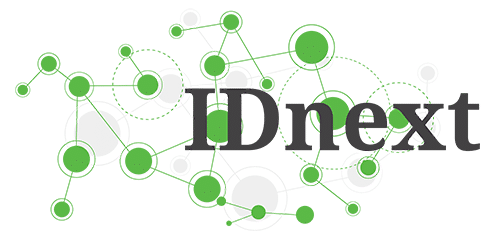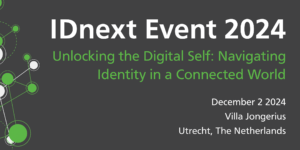11th October
09:00 – 09:30
Entrance & coffee
09:30 – 09:45
Opening & Welcome
Robert Garskamp | IDNEXTPLATFORM

09:45- 10:10
Marlies Rikken | Innovalor
There has been some progress on this front over the past years. And wouldn’t it be nice? A trusted, digital identity that allows for seamless access to a wide range of services within Europe. A call for the development of an “EU-wide secure public electronic identification (e-ID) to provide people with control over their online identity and data as well as to enable access to cross-border digital services Idea. What are the current developments and where do we stand?
10:10- 10:35
Sylvia Vandevelde | ITSME
There has been some progress on this front over the past years. And wouldn’t it be nice? A trusted, digital identity that allows for seamless access to a wide range of services within Europe. A call for the development of an “EU-wide secure public electronic identification (e-ID) to provide people with control over their online identity and data as well as to enable access to cross-border digital services Idea. What are the current developments and where do we stand?
10:35- 11:00
JAYA BALOO | AVAST
There has been some progress on this front over the past years. And wouldn’t it be nice? A trusted, digital identity that allows for seamless access to a wide range of services within Europe. A call for the development of an “EU-wide secure public electronic identification (e-ID) to provide people with control over their online identity and data as well as to enable access to cross-border digital services Idea. What are the current developments and where do we stand?
11:00- 11:30
ROLAND VAN RIJSWIJK | COMPANY
Identity in a (Post-) Quantum World’
The development of quantum-safe public key algorithms, also colloquially referred to as “Post Quantum Cryptography” (PQC) is accelerating. The National Institute of Standards and Technology (NIST) in the US is running a competition challenging researchers to come up with secure PQC algorithms. This competition has entered its final phase, meaning that standardised PQC algorithms are on the horizon. This is going to impact the Internet industry, as these algorithms will need to be deployed, and this brings new challenges (as these algorithms sometimes differ significantly from current practice). In my talk, I will discuss these challenges in the context of digital identity, including a call for action by identity management vendors to assess how to best prepare their systems for the deployment of PQC algorithms.
11:30- 12:00







